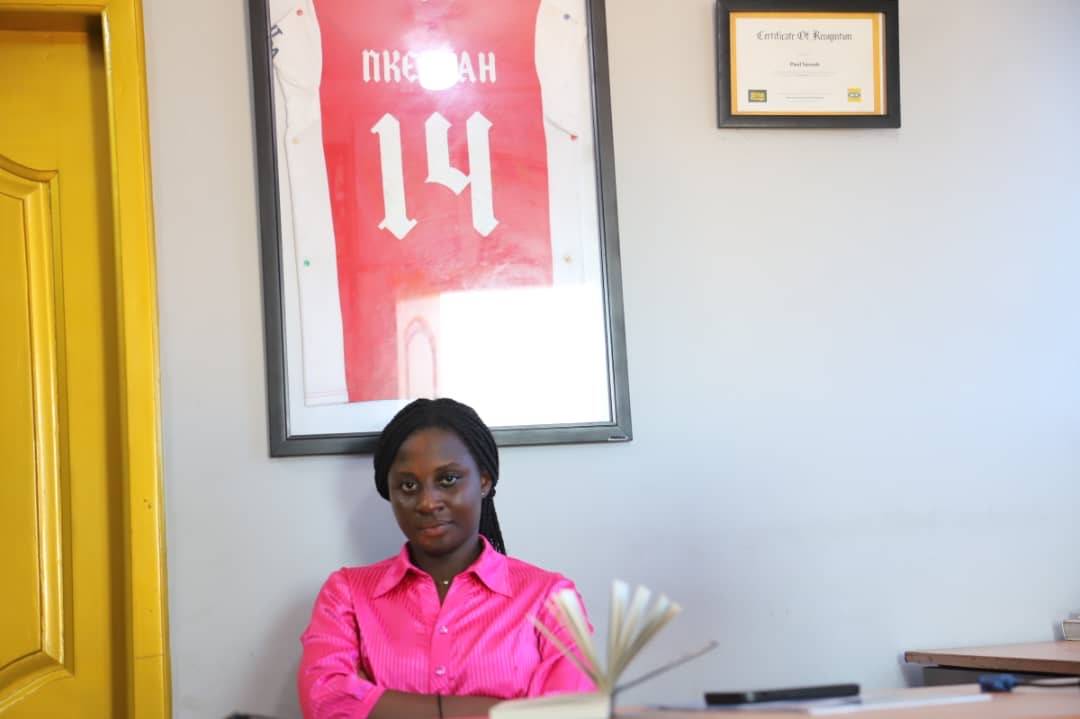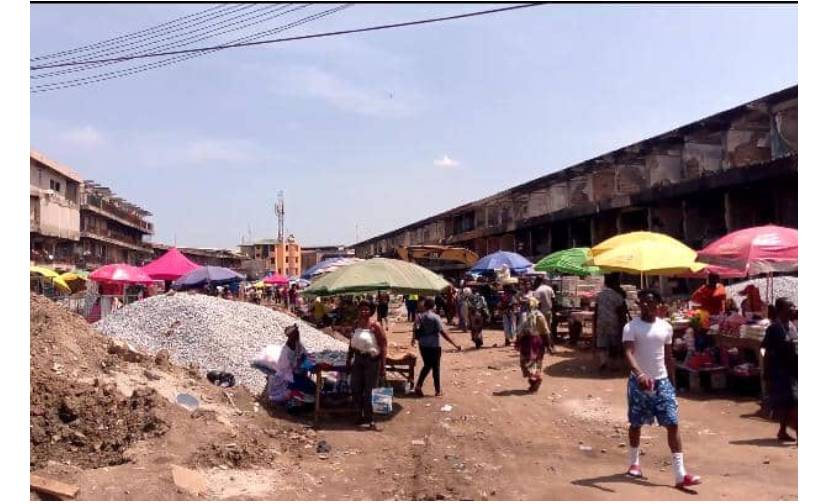Adum fire: Traders pull down roofing sheets used by KMA to cordon off affected areas to ply their business
Traders operating at Kumasi’s Adum Blue Light Arena have forcibly dismantled the sheet‑metal fencing erected by the Kumasi Metropolitan Assembly (KMA) to seal off parts of the market gutted by fire a month ago.
When the women arrived early Thursday, 24 April 2025, they discovered that KMA work crews had ring‑fenced the charred zone with corrugated roofing sheets, blocking entry. Military personnel posted to guard the perimeter looked on as dozens of traders—many dressed in red to signal protest—tore down the barricade. 
Market queen mother Abena Nsowaa accused city officials of using the reconstruction project to dispossess long‑standing stallholders. “If KMA takes over the rebuilding, outsiders will get the new shops and we will be pushed out,†she told reporters, vowing that traders would keep removing any obstacles to their return. 
The Blue Light Arena, a densely packed commercial enclave in central Kumasi, was ravaged by a night‑time inferno four weeks earlier, destroying three adjoining three‑storey blocks and leaving thousands without livelihoods. In the aftermath, KMA declared the site a safety hazard, barred trading, and promised to develop a comprehensive rebuild plan. 
Despite repeated warnings—including threats of arrest—hundreds of vendors have drifted back, arguing that they cannot survive weeks or months without income. A spot check on Thursday revealed fresh wooden tables and makeshift stalls springing up amid the blackened debris. Private builders, apparently hired by individual shop owners, were also seen mixing concrete and laying blocks to resurrect one of the burnt‑out buildings in defiance of city orders. 
KMA officials say the fencing was intended to keep people away from unstable structures and to allow engineers to complete damage assessments. They insist that any reconstruction must follow approved architectural drawings to prevent future disasters. Traders counter that delays in official rebuilding could drag on indefinitely, citing previous fires in Kumasi markets where promised projects stalled for years. 
The standoff highlights long‑running tensions between city authorities and informal‑sector workers who dominate Kumasi’s retail economy. While the metropolitan assembly stresses public‑safety and urban‑planning concerns, stallholders accuse it of prioritising revenue‑generating redevelopment schemes over their survival. Many suspect that once a formal project commences, rental rates will soar beyond their reach. 
Civil‑society groups are urging dialogue, warning that continued confrontations could erupt into violence similar to past clashes over market demolitions. Meanwhile, fire victims are appealing for quicker disbursement of relief funds and concessional loans promised by government and private donors, arguing that financial support—not fencing—will keep them afloat until permanent shops rise again.




No comments yet
Be the first to share your thoughts!